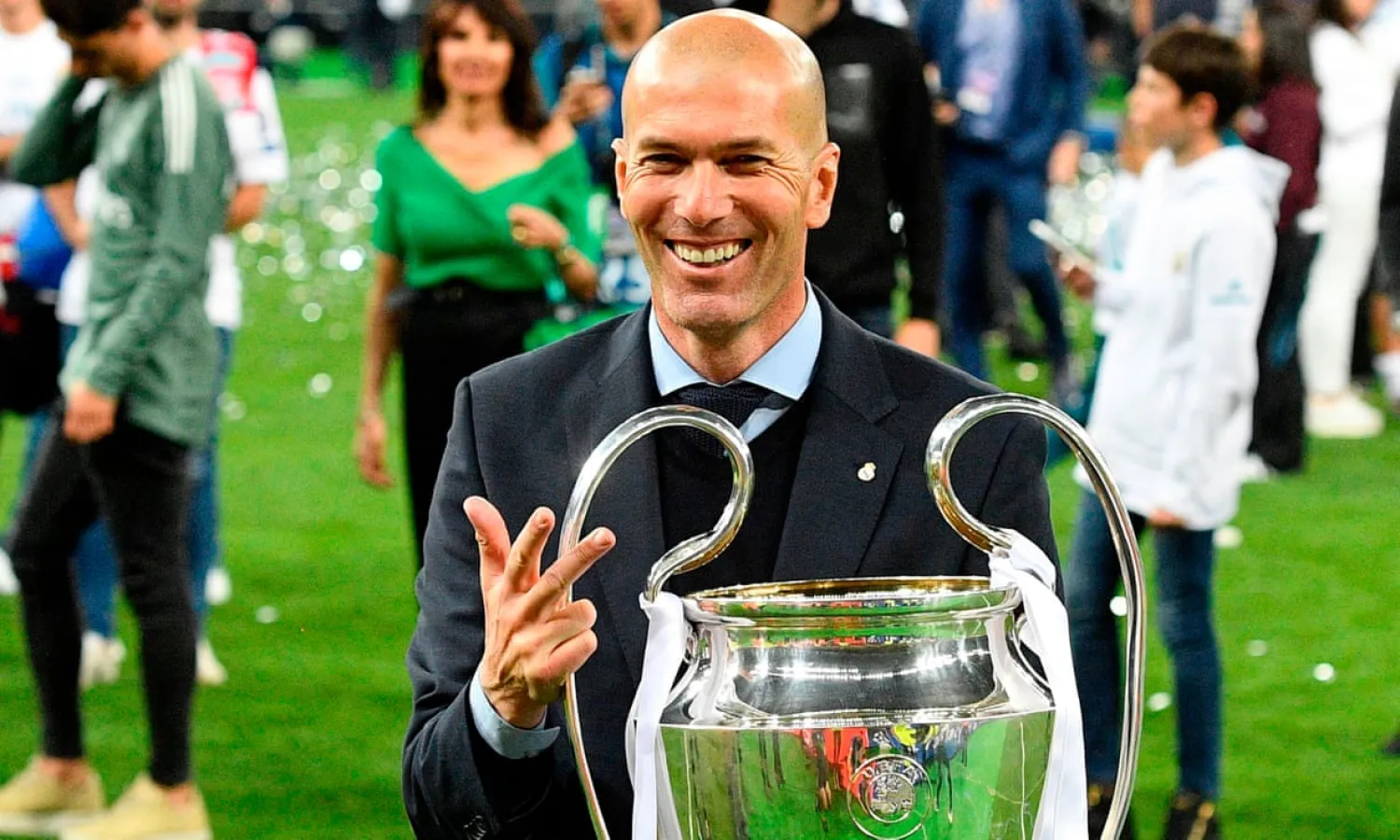Pfff, and the crisis was gone. Zinedine Zidane walked into the room at the Santiago Bernabéu a little after eight o’clock and suddenly all was well with the world. It is not of course – Real Madrid’s season is over three months early, there are significant structural problems, and even the president, Florentino Pérez, called this an “especially difficult moment” – but that is how it felt. Whatever happens next, as an act of crisis management this was a masterstroke, the perfect move.
Zidane walked back in 284 days after walking out. Sequels were never any good, they say, but in the warmth of his return no one doubted this was the right decision – even if they dare not believe this will be as good as the first time, when Madrid won three consecutive Champions Leagues.
It can’t begin the same way, that’s for sure: Zidane was a European champion within five months of taking over last time; this time it will be five months before Madrid play a match that matters. Except that they all matter, as much for what happens around them as what happens on the pitch.
His first game is against Celta Vigo on Saturday and 10 more follow, all of them fundamentally irrelevant, but Zidane talked about them as something to enjoy, not endure. Attendances have plummeted this season; watch it rise again this Saturday. The risk was that disaster might follow defeat, the crisis deepening and divisions widening. Zidane’s arrival stems the bleeding. Ilusión was the word repeated: there may yet prove something illusory about it, but it means hope, excitement, enthusiasm, optimism.
Whether that can be maintained, whether a full recovery will follow, is another issue. There are many questions, most of them born of a fundamental doubt standing at the heart of it all: if there was a reason you walked away nine months ago, and there was, what has changed to make you walk back in again? Zidane said there was none, but no one bought that. Asked what his first thought was when the president called him, he replied: “To go back.” Pausing, he added: “And here I am.”
“I love the club, I couldn’t say no to the president,” Zidane said and there is genuinely an emotional connection, but nor did he say yes straight away. The call came last Thursday; he was presented on Monday. The traffic can be bad in Madrid but it doesn’t take that long to get from Arturo Soria to the Bernabéu. He was not forthcoming and replied “no, no” when asked directly whether guarantees had been given, but it is inconceivable that he accepted without concessions. There had been some reluctance at first but he was the man in the position of power, able to mould this to his ideas: Madrid needed him and they needed him now.
There was indeed a reason Zidane walked away in May. Many of them, in fact, all interrelated. Always seen as elegant, almost effortless – even as a coach – that impression disguises that he is a competitor. He talked then about needing a change after three years – for his sake and for theirs. “It’s the right decision,” he said. “I don’t like losing. If I feel like I am not going to win, I have to make a change.” He has been proven right; Madrid have failed to win – and that fact alone changes things. It makes his achievement, perhaps undervalued before, appear all the greater. It also serves almost to ringfence and protect his legacy, whatever happens now.
There is no guarantee how this will end, but Zidane wouldn’t have walked back in if he didn’t feel that he could win now. “It might be a see you later, not a goodbye,” he said under a year ago, but it is not as if he has never been away. Quite the opposite: being away is a key part of his armory now. Going away and coming back is better than never having gone at all.
This season without him provides a corrective, a reminder, and strengthens his hand enormously in the boardroom and the dressing room. The experience alone represents a change, and he said that there would be more. There will be arrivals and departures, with Gareth Bale high on the list of those whose future at Madrid became bleaker on Monday, and he will lead those, handed the authority and the money that he didn’t get before.
There are lessons to be learned from that failure without him and indeed from what he described as the failures with him. Last season they won the European Cup but finished 17 points behind Barcelona, with Zidane himself insisting the domestic title was the one he really valued. Whereas some managers talk endlessly about what they won, he talked about what he had lost. “We won the Champions League, OK, sure,” he said, “but the league was lost from the start.”
For him, this league is lost from the start too. Taking charge now with nothing to play for, with the potential for deepening problems, confrontations and crises like those seen in the five days since Ajax knocked Madrid out, might burn some managers. But with Zidane there is instead gratitude for him taking over at a time like this; his arrival puts out the fire and these failures will not be his. Next season’s will, and then judgments will be made, but if there is success it will be more his than ever before. “I’m happy,” Zidane said, “and that’s what matters.” Everyone else was happy too.
(The Guardian)









